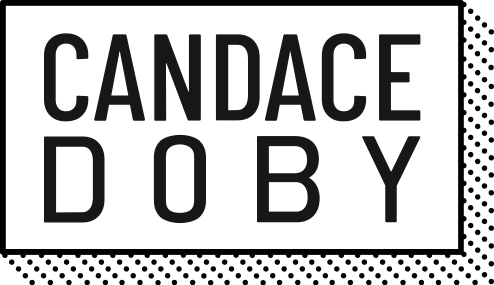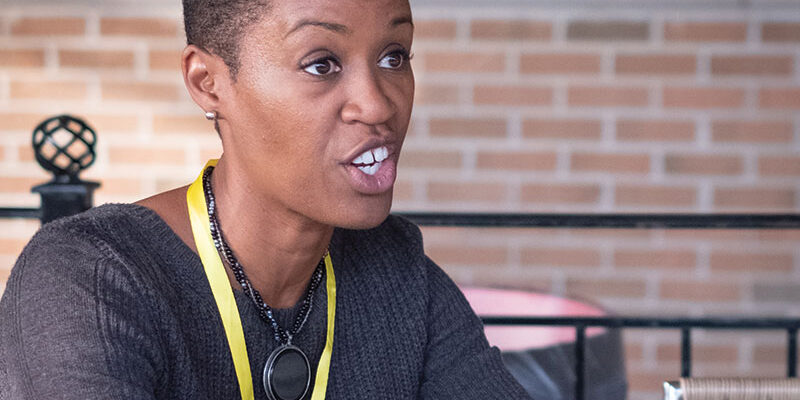At the end of a recent presentation I delivered about taking more risks in the workplace, I got a question from a young professional who seemed fully frustrated.
“I’m new to my career and team, and I feel like my team doesn’t listen to me when I speak up in meetings. It’s as if they disregard what I have to say and move on to the next person. I feel like I don’t have a seat at the table because I’m the newest and youngest person on the team.”
I sensed that she was terribly close to abandoning future attempts at sharing her perspective with teammates due to what felt like a lack of acknowledgment and respect from them. Shutting down can seem like the most appropriate solution to protect a sense of pride and, possibly, mental well-being. But, experience has taught me that holding ideas hostage leads to impairment of growth and development for the person as well as for the team and organization.
I applauded her for having the courage to speak up in rooms of colleagues with more experience (and sometimes more testosterone and extroversion) than her. And, I challenged her to keep going — to keep summoning personal courage to lift her voice and honor her perspective.
To help the young woman in the audience and young professionals like her continue contributing to their teams, I’ve listed five techniques they can employ to up-level their persuasiveness and influence.
Ask questions.
Questions are hard to ignore. They naturally offer up an invitation to respond. I learned this when I was on dating apps (before I met my wonderful husband) trying rather fiercely to communicate with eligible bachelors. Many conversations flamed out abruptly, not because there wasn’t interest … but because there weren’t enough questions to facilitate more conversation. Therefore, one of the quickest (and maybe easiest) ways for young professionals to elicit a response from their teammates regarding something they’ve said is to ask questions.
This can be done in a few ways. Young professionals can give feedback in statement form and follow up with a “what do you think about that?” or “does that sound like something that would be a good fit?” type of question. Or, they can incorporate their feedback into a question. “Do you think it would be a good idea if we changed that part of the process and saved the company $200,000?” Posing questions in this way make them pretty difficult to dismiss. Questions are magic. They do so much good in so many scenarios. Young professionals should make it rain questions everywhere — from their conference rooms to their break-out rooms.
Build trust.
Researcher Clifford Nass shared two important ways to build trust in his book “The Man Who Lied To His Laptop“: flattery and familiarity.
When young professionals are new to the team, they likely haven’t built up the same level of trust that veteran teammates have with each other. This may make it difficult for those teammates to deeply and critically consider feedback young professionals share. As a result, building trust is an important step professionals can take to increase the probability that their teammates become more attentive to their remarks.
Flattery
Nass suggests in his book that flattery can, indeed, deliver powerful outcomes. Who doesn’t like a bit of flattery now and then? He uncovered that people who receive praise believe the flatterer to be “thoughtful and intelligent for noticing their marvelous qualities — whether they exist or not”. When young professionals are seen as intelligent, their feedback and suggestions can be more easily considered. It’s important to note, though, that this hack should be used in moderation and come from a place of sincerity to avoid coming off as a brown-nosing, booty-kissing suck up. Turning into that type may give young professionals some of the attention they hoped for, but they’ll also get dozens of eye-rolls thrown their way.
Familiarity
There’s a common principle that says that “familiarity breeds liking and liking breeds trust.” Multiple interactions with teammates increases familiarity. This is why it’s important for young professionals to continue speaking up, even if their first few suggestions during team meetings are brushed off. They’re building familiarity. Reframing can be key here, too. Young professionals who may believe they are being neglected because of their inexperience can reframe their thinking and consider that they’re feedback is going unheard because their teammates are unfamiliar with them and unaccustomed to incorporating it …yet. Another way to build familiarity, according to research, is for young professional to help their teammates … with simple or sizable tasks. Doing so demonstrates to their teammates that they have their teammate’s interests in mind. Later, when young professionals make suggestions, there is a greater likelihood that their suggestions will be considered.
Listen.
Listening is hard. Seriously. Auditory learning relies on the integration of cognitive, sensorimotor, and reward networks. This makes clear, concise communication incredibly crucial. Young professionals (any professional, really) should ensure their contributions to a conversation are easy to understand. This means that their feedback shouldn’t be too complicated or too lengthy. Sophistication — regardless of whether we’re referring to clothes or commentary — is often expressed with simplicity.
Moreover, young professionals should ensure that they are listening, especially if they want to be listened to in return. They will likely find their feedback to be less effective if they simply (and clumsily) pile words on top of what another teammate has previously said. Young professionals, instead, should focus on adding value to a conversation. Adding value happens when young professionals build on what has been spoken in a relevant and meaningful way. They can reflect some of the exact same words back to a previous speaker before moving on with their feedback. Doing so easily communicate that they’ve heard what another person has offered up.
Additionally, the “yes, and” technique, which is commonly used in improvisation theater, is an appropriate tactic to employ to help add value to a team conversation. In fact, listening is a prerequisite for using the technique effectively. The technique is applied when a young professional follows up a teammate’s remarks with “yes, and” before offering up their perspective. The power of the two-word phrase extends well beyond its brevity. “Yes, and” communicates to everyone in the room that a young professional has absorbed what the previous speaker said AND plans to move the conversation forward with their contribution.
Change your label.
People believe people who demonstrate expertise, and expertise is easily demonstrated through labels. Nass uncovered that the reason we put so much stock in labels is because “uncertainty makes people very uncomfortable. Accepting someone’ label gives people a clear and unambiguous take on whether to accept or reject the person’s suggestions.” Young professionals who are new to the team are often labeled as “inexperienced.”
If the label is implied or communicated enough, it could become one young professionals, themselves, adopt. One of the ways young professionals can level-up the probability that they will be heard in team conversations is to ditch the “inexperienced” label and choose another one that is more inspiring and empowering. Young professionals should intentionally think about something they are really good at and want to be known for on their teams, like using metaphors to bring clarity to complex topics. Then, they can assign themselves a label that reflects that expertise: metaphor master. Doing this creates space on a team for a young professional to demonstrate their expertise every time a complex topic comes up in conversation.
Talk to your boss.
Sometimes, changing the conversation comes down to young professionals scheduling a sit-down with their bosses to talk about their experiences. If young professionals have good bosses, they will see rather immediate a shift in dynamic.
In closing …
Hopefully, young professionals see progress after incorporating these techniques into their approach to team communication. If they feel like they’ve done dang near everything to contribute to a team that just doesn’t seem to see their value, then they’ll have to consider other techniques … like how to move their cute little feet out the door.







